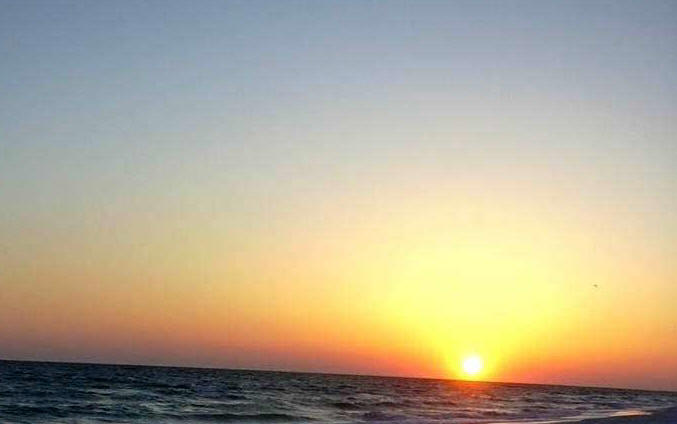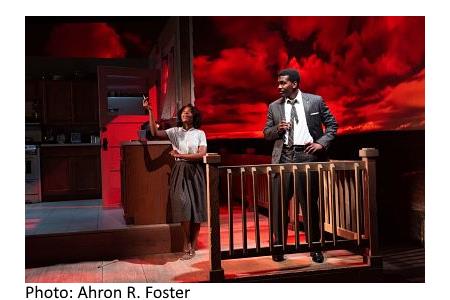

Posted 10/24/18

Set in September 1963, Fireflies posits the searing personal sacrifices in the struggle for civil rights. This powerful two-hander at the Atlantic Theater, with a stunning performance by DeWanda Wise as Olivia, the wife of a reverend and major civil-rights leader, takes a deep dive into both suffering and hope.
The timing is telling. It’s a few months after
the assassination of civil-rights leader Medgar Evers and just days
after the 16th Street Baptist Church in Birmingham, Alabama, was bombed,
an act of white supremacist terrorism that killed four black girls.
The brutality marked a turning point in the civil-rights struggle, and that’s where Fireflies opens, per the author’s note: Somewhere down South, where the sky is on fire.
The region is exploding; activists are speaking at churches and rallies to fight injustice, often at great personal risk. The external terror is matched by internal rage and rebellion.
Olivia (DeWanda Wise) is married to Charles (a solid Khris Davis), a charismatic preacher and leader of a movement. There are shades of Martin Luther King, Jr. here, including some of the nastier actions the FBI waged against him and his wife.
The play is set in their kitchen, where Olivia and Charles appear as a loving couple. But playwright Donja R. Love skillfully peels back their multilayered relationship — and we discover they are more complicated and nuanced, especially Olivia.
Charles connects with people; his popularity is his own. But the words that propel it are thanks to the remarkable speeches his wife writes. As a proto-feminist, she longs to find her own voice outside the constraints of societal convention.
And that’s where Fireflies reveals its power as a struggle-within-a-struggle sensibility.
Fireflies addresses infidelity, emotional transgressions, political commitment and finding one’s destiny. Love embraces the necessity of feminism and human rights, while exploring what he calls “reimaging monolithic narratives that challenge the white supremacist, hetero-normative structures in American culture.”
Fireflies raises provocative issues about sexual discrimination and the radical notion of choice, particularly for women. And that reality — located between fear and Charles’ fight to create a better world, underscores this tense, modulated drama. The connection between the two is complicated; it’s beautifully choreographed, danced to perfection by the leads.
A desperate Olivia asks: What is hope? Her face is suffused with pain, and without a word, just a simple body movement, she telegraphs volumes. Walking a tightrope between what is accepted and what is desired, a gifted DaWise embodies the enormity of her character.
Davis sensitively captures the strength, vulnerability and contradictions of Charles. The backdrop and David Weiner’s lighting neatly reflects psychic tension. Director Saheem Ali builds the pace naturally, so the play’s crescendo is shattering.
Fireflies, is a remarkable and essential play. It’s a wake-up call that succeeds on two levels: As a specific story about two activists in the South during a turbulent period in American history, and a personal journey about freedom, however one conceives it.
—Fern Siegel